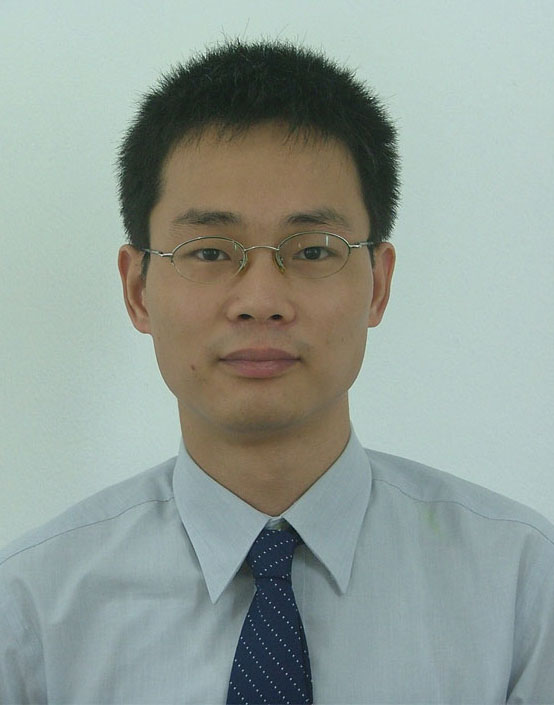
HE Ping
Professor, Ph. D.,Director, Fudan University Center for Japanese Studies, Institute of International Studies
Research Interests: Trade Politics; U.S.-Japan Economic Relations; Regionalization and Regionalism of East Asia
Tel (o): (21)6564-2577
Fax: (21)6510-5168
Dr. He Ping is Professor of international politics at the Center for Japanese Studies, Institute of International Studies, Fudan University. He is also affiliated research fellow at the Department of Diplomacy, School of International Relations and Public Affairs, and Center for BRICS Studies, Fudan University. His research concentrates on trade politics, U.S.-Japan economic relations and regional integration in East Asia. He was a Senior Visiting Scholar at the SFC Research Institute, Keio University in 2006-2007 and was awarded a Swire/Cathay Pacific Scholarship for Senior Associate Membership at St Antony’s College, University of Oxford in 2014-2015. He received his Ph.D. in international politics from Fudan University in 2008.
Books(Monograph and Translation)
Trade Politics, Shanghai People’s Publishing House, 2013
Trade Conflicts and Great Power Relations, Shanghai People’s Publishing House, 2011, co-authored with Fan Yongming and Huang He
Faizel Ismail, Reforming the World Trade Organization: Developing Countries in the Doha Round, Shanghai People’s Publishing House, 2011, co-translated with Ling Yunzhi and Deng Zhenghui
Papers
From Groups back to Persons: the Individual Perspective of Trade Politics, Quarterly Journal of International Politics, No.2, 2014.
An Integral Part of the New Transregionalism: Japan-EU EPA/FTA, Japanese Studies, No.2, 2014.
RCEP and China’s Asia-Pacific FTA Strategy, China International Studies, Vol.40, No. 3, 2013.
A Review on U.S. Trade Negotiations with Japan and Its Effectiveness: Implications for China, in Keiji Nakatsuji ed., Why Regionalism Now? Kyoto: Nakanishiya, 2013.
From CEPEA to RCEP: The Reorientation of Japan’s Regional Economic Cooperation Strategy in Asia-Pacific Region, Japanese Studies, No.2, 2013.
Regional Public Goods and Functional Cooperation in East Asia: The Japanese Experience and Its Implications, in Meijo Asia Research Center, Meijo University, Kyung Hee Institute of Human Society, Kyung Hee University, School of International Relations and Public Affairs, Fudan University, eds., Regional Dynamics in East Asia: Issues and Perspectives, HANDA, 2012.
Regionalism or Multilateralism: Competing Paths for Trade Liberalization, Contemporary Asia-Pacific Studies, No.6, 2012.
Regional Public Goods, Functional Cooperation and Japan’s East Asian Diplomacy, Foreign Affairs Review, No. 6,2012.
Japan’s Strategic Intention and Policy Debate of Participating TPP Negotiations, Japanese Studies, No.4, 2012.
Regional Public Goods and Functional Cooperation in East Asia: Japan’s Experience and Its Implications, World Economics and Politics, No.1, 2012.
The Prioritization of Private Sector in theTrade Conflict Resolution: A Case Study of Toyota, Contemporary Economy of Japan, No.1, 2012.
Gaiatsu and Policy Coordination in International Economy: A Case Study of U.S.-Japan Trade Conflicts and ItsImplications, Japanese Studies, No.3, 2011.
A Comparative Analysis on the Three Negotiation Mechanisms of U.S.-Japan Trade Conflicts, Northeast Asia Forum, No.5, 2010.
Japan’s Reform of Farmland Circulation Systemin the Postwar Era: Legislative Adjustments and Distribution of Benefits, Japanese Studies, No.3, 2010.
The Changing Dispute Settlement Mechanism of U.S.-Japan Trade Conflicts under the Multilateral Trading System, Fudan Journal, No. 6, 2009.
Japan’s East Asian Cooperation Strategy: the Perspective of Regional Public Goods, Contemporary Asia-Pacific Studies, No.5, 2009.
U.S.-Japan FTA/EPA: Policy Debate, Focused Issues and Development Perspective, Northeast Asia Forum, No.5, 2009.
Two-level Games in Deregulation: A Case Study of Japan’s Big Store Law, Japanese Studies, No.2, 2009.
The Impact of U.S.-Japan Trade Conflicts on Japan’s Domestic Reforms, Contemporary Economy of Japan, No.1, 2009.
From Flying-geese Model to EPA: Japan’s East Asian Cooperation Proposals and the Effective Supply of Regional Public Goods, in Zhang Jianxin ed., International Public Goods and Regional Cooperation, Shanghai People’s Publishing House, 2009.
A Preliminary Analysis of the Relaxation Process of U.S. “China Embargo” in the Early Phase of Nixon Administration, Fudan American Review, No.1, 2009.
The U.S. Revisionism towards Japan in U.S.-Japan Trade Conflicts, World Economy Study, No.1, 2008.
China: the Active Constructor of the Multilateral Trading Regime, Fudan Journal, No.5, 2006.
China and the WTO: from Adaption to Construction, World Economy Study, No.12, 2006.
Trade Conflicts and the Rise of Great Powers: U.S.-Japan Economic War and Its Implication for China, JapaneseStudies, No.3, 2006.






